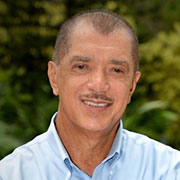Definitely Not on Track to save Life on Planet
VICTORIA, Seychelles, Nov 19 (IPS) - Alongside climate finance, COP29 currently being held in Baku, Azerbaijan, was expected to serve as an important platform for nations to demonstrate their intention to submit stronger national climate commitments, strengthen adaptation efforts, and show tangible progress and action on previous pledges.

Halfway through the conference some key experts and leaders including UN Former Sec Gen and former Climate Chief , issued an open letter to the UN. —
Stating that, "The United Nations' COP climate talks are ‘no longer fit for purpose' and need an urgent overhaul."
The UN's climate talks have made significant progress in recent years, despite the fact that unanimous agreement is needed among almost 200 countries to take action.
The Paris climate agreement, signed in 2015, to keep that rise under 1.5C this century.
But are we on track to achieve these stated goals to save life on the planet?
Definitely not !
It is not a lack of resources which is holding it back but a lack of commitment. WWF (early in 2020) predicted that three of the four targets for 2020 would not be achieved, and one (on MPAs) only partially so. In another critical study it is stated that a failure to achieve this is due to the fact that 70 per cent of all countries had not by then met a single one.
More worrying, though, is the conclusion that, for many countries the ocean is simply not a priority.
It is no coincidence that of all the 17 goals, SDG 14 attracts the least funding; the shortfall to enable targets to be met is estimated to be close to $150 billion.
Small island states are a case in point, all of which are totally dependent on the surrounding ocean but which are invariably without sufficient funding to invest in improvements. The unifying factor, though, is not geography but economic performance, which can be evident in large as well as small countries.
Hampered by such obstacles as trade barriers, debt distress, food insecurity, climate change and meagre resources, the world's poorest countries lagged furthest behind in reaching the Sustainable Development Goals.*-
The basic contradiction, of course, is that getting to a state of sustainable development costs money - but if that is in short supply, how can everyone get there?
It follows from this that it is in the world's interest to transfer funds from richer to poorer nations to make the changes that will benefit the world. Alas, the outcome of lengthy discussions and the various COPs have so far failed to offer any practical suggestions to achieve this. Words again, without action.
Therefore for now one has to go down the scale, to the level of individuals, communities and NGOs to find more promising ways to rescue the situation. The UN can be retained to add gravitas (given its record, an irony in itself) but the real energy for change will come from those who care most and are not shackled by endless rules and factional interests, and the financing of wars as a priority.
(The author served as the third President of Seychelles from 2004 to 2016).
IPS UN Bureau
Follow @IPSNewsUNBureau
Follow IPS News UN Bureau on Instagram
© Inter Press Service (2024) — All Rights Reserved. Original source: Inter Press Service
Where next?
Browse related news topics:
Read the latest news stories:
- Forest Guards Risking Their Lives To Keep Malawi’s Forests Standing Monday, March 31, 2025
- Global Climate Action Progressing, but Speed and Scale Still Lacking Monday, March 31, 2025
- ‘Student Protests Have Sparked Solidarity, Empathy and a Renewed Belief in Collective Action’ Monday, March 31, 2025
- Southeast Asia’s Economies Can Gain Most by Packaging Ambitious Reforms Monday, March 31, 2025
- Myanmar earthquake: Search and rescue efforts continue in race against time Sunday, March 30, 2025
- Looking beyond GDP to reach the Sustainable Development Goals Saturday, March 29, 2025
- UN chief strongly condemns killing of Kenyan peacekeeper in Central African Republic Saturday, March 29, 2025
- Myanmar quake: More than 1,600 reported killed, as UN aid operation supports rescue efforts Saturday, March 29, 2025
- Water and Food Security in Europe and Central Asia: A Shared Challenge for a Sustainable and Just Future Friday, March 28, 2025
- Latin America & the Caribbean in 2024: Renewable Energy and Early Warning Systems Offer Hope Amid Climate Extremes Friday, March 28, 2025
Learn more about the related issues: